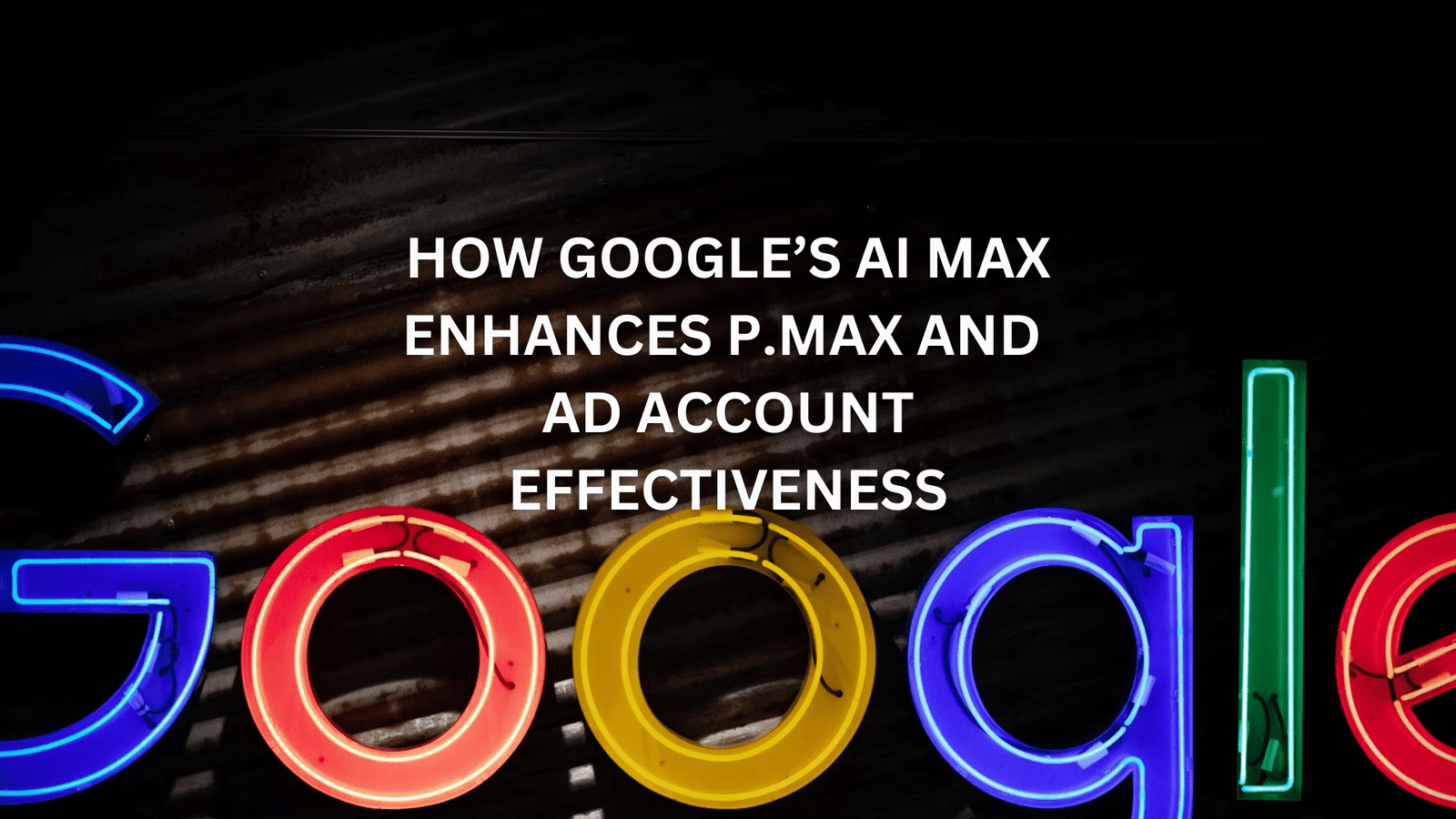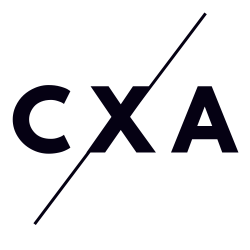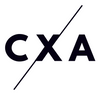Google AI Max for Search Campaigns - The 'Now' of AI Advertising

Google has been knocking it out of the park laterly. First with their Google I/O update in late May and now with AI Max, which was showcased at Google Marketing Live, also in late May 2025.
Google's AI Max introduces a transformative approach to search advertising, leveraging advanced AI to enhance campaign performance.
Google's advertising ecosystem is undergoing a significant transformation, driven by advancements in artificial intelligence. Central to this evolution are two prominent tools: Google Performance Max (PMax) and the newly introduced Google AI Max for Search campaigns. Understanding their distinct functionalities and strategic applications is crucial for advertisers aiming to optimise their digital marketing efforts.
Google Performance Max (PMax) is a comprehensive, goal-based campaign type designed to maximise conversions across all of Google's extensive advertising channels. This includes Search, YouTube, Display, Discovery, Gmail, and Maps. PMax operates through extensive AI automation, optimising bidding, budget allocation, audience targeting, and creative asset selection to achieve specific business goals like online sales, lead generation, or store visits. Its primary appeal lies in its broad reach and simplified management, offering a streamlined approach to cross-channel advertising.
In contrast, Google AI Max for Search campaigns, unveiled at Google Marketing Live 2025, is not a standalone campaign type but rather an AI-powered feature suite specifically designed to enhance existing Google Search campaigns.
The fundamental distinction between these two powerful tools lies in their scope and focus.
Google AI Max for Search campaigns' core purpose is to expand reach within the Search environment, dynamically tailor ad creatives, and provide more granular control and transparency, directly addressing common advertiser concerns about automation.
PMax serves as a holistic, cross-channel campaign, casting a wide net to capture conversions across Google's vast inventory. AI Max, conversely, provides precision and deeper optimisation specifically within the high-intent Search environment. It offers a level of control and transparency within Search that PMax historically lacked, particularly regarding specific search terms, brand associations, and geographic targeting.
There's so much to cover we've broken down our analysis, insights, key features and questions marketers and about Google AI Max, let's just dive in to some of the tactical specifics to take your campaigns to the next level:
1. Dynamic Query Matching Beyond Keywords
AI Max leverages Google AI to optimise ads in real-time and tailor creative messages, primarily through two main features:
This feature is engineered to expand reach beyond an advertiser's existing keyword list. It utilises advanced broad match and "keywordless technology" to identify more relevant and high-performing search queries and conversions that might otherwise be missed by traditional, more restrictive keyword strategiess Google AI continuously learns from the advertiser's current keywords, creative assets, and URLs to ensure ads appear on the most relevant searches, providing significant "incremental reach and performance" within the
Search ecosystem. AI Max analyses your existing keywords, ads, and landing pages to target relevant searches not explicitly bid on.
This combines broad match logic with semantic understanding, similar to Dynamic Search Ads but with deeper contextual analysis.
For Example: A campaign for "hiking boots" might automatically target "best waterproof trail shoes" without manual keyword additions.
2. Transparent Automation with Granular Controls
Advertisers retain oversight through three toggleable features:
-
Search term expansion (broad match + keywordless targeting)
-
Dynamic text customisation (auto-generated headlines/descriptions)
-
Final URL optimisation (landing page selection based on query context)
Google’s Brian Burdick emphasises: "You can turn it on, turn it off, try it…with minimum disruption to ongoing operations".
Google Performance Max vs Google AI Max Compared

Integrating Both for Optimal Results: The "Power Pack" Strategy
Google's latest strategic positioning of PMax, AI Max for Search, and Demand Gen campaigns as a complementary "Power Pack" underscores the value of integrating these tools. This approach allows advertisers to construct a comprehensive and highly efficient Google Ads ecosystem.
PMax for Discovery and Broad Funnel: Performance Max should be utilised to cast a wide net, driving brand awareness, uncovering new audience segments, and maximising conversions across all Google channels. This is particularly effective for broader, upper- and mid-funnel objectives, allowing the AI to identify and capitalise on latent demand across the entire ecosystem.
AI Max for High-Intent Search Optimisation
AI Max should be employed to supercharge high-intent Search campaigns. This ensures that when users are actively searching for specific products or services, ads are hyper-relevant, dynamically tailored, and appear for the widest possible range of high-performing queries. This strategy allows for precise capture of demand within the critical Search channel while maintaining essential brand and geographic controls.
Foundational Elements for Success
For both tools to perform optimally, advertisers must ensure robust conversion tracking (including enhanced conversions or offline conversion tracking), provide high-quality creative assets, and effectively leverage first-party data to feed the AI with strong signals. These foundational elements are critical for the AI to learn and optimise effectively.




Leave a comment